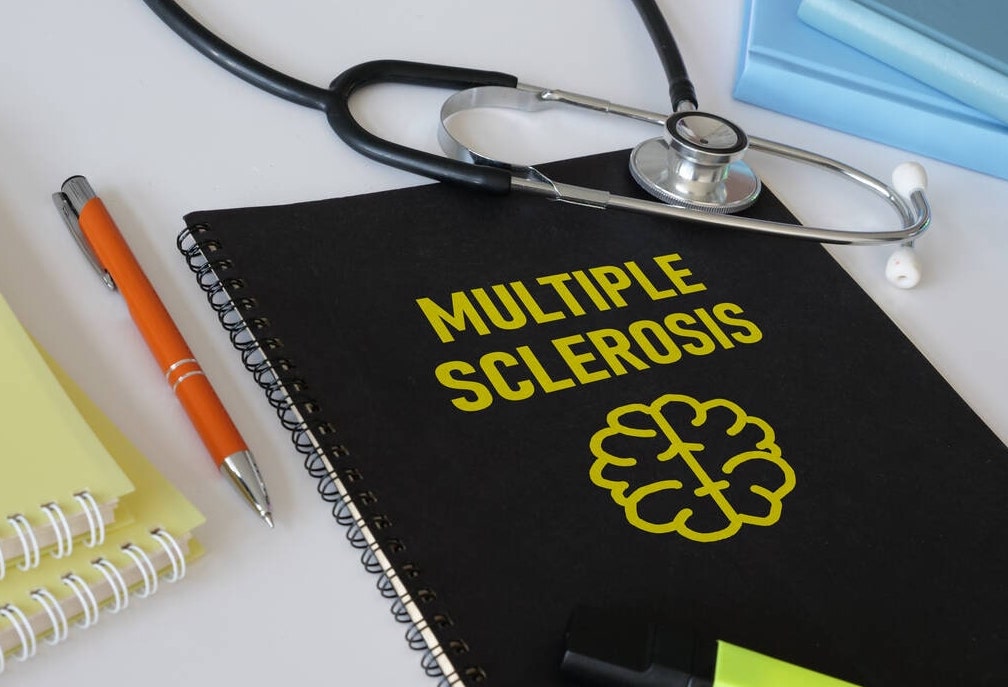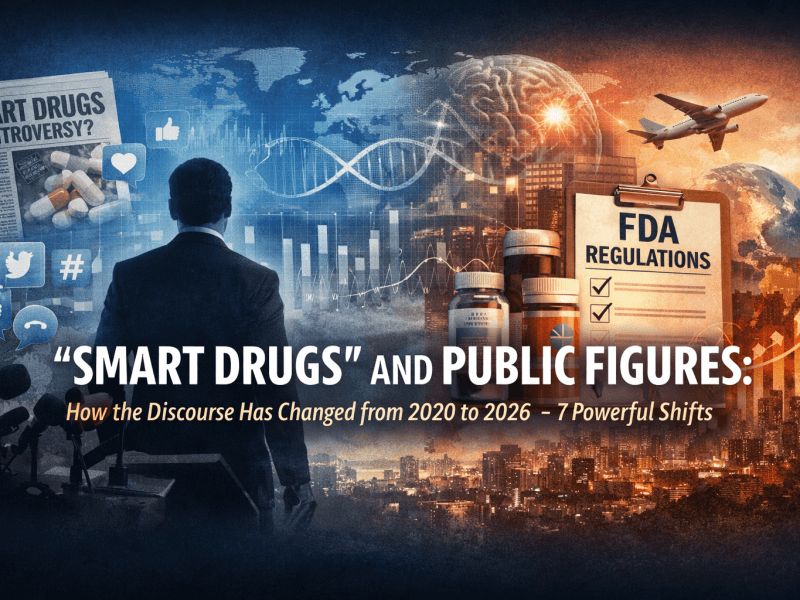Last Updated on 31/01/2026 by James Anderson
Navigating the complex landscape of Multiple Sclerosis (MS) often means confronting a relentless and debilitating companion: fatigue. This is not ordinary tiredness but a pathological exhaustion that can overshadow physical disability in its impact on quality of life. For the millions living with MS, finding an effective strategy to combat this symptom is paramount. Emerging evidence, prominently discussed at recent forums like the Americas Committee for Treatment and Research in Multiple Sclerosis (ACTRIMS), points toward a powerful, integrative approach that marries pharmacological precision with psychological empowerment. How combining the wakefulness-promoting agent Modafinil with structured talk therapies like Cognitive Behavioral Therapy (CBT) offers a dual-front strategy for managing MS-related fatigue.
Introduction: The Overwhelming Burden of MS Fatigue
MS-related fatigue is a primary and often disabling symptom, affecting up to 80% of individuals with the condition. It is characterized by a profound, overwhelming sense of exhaustion that is disproportionate to recent activity and not reliably relieved by rest. This “MS fatigue” can strike suddenly, interfering with cognitive function (creating “brain fog”), physical ability, and emotional well-being. It creates a significant barrier to daily activities, work, and social engagement. Successfully managing it often requires moving beyond a single treatment modality to address its multifaceted nature both the biological drivers and the psychological cycle it perpetuates.
Modafinil – A Pharmacological Tool for Wakefulness and Clarity
Modafinil (brand names Provigil, Alertec) is an FDA-approved eugeroic, or wakefulness-promoting agent, primarily prescribed for narcolepsy, sleep apnea, and shift work sleep disorder.
Mechanism of Action: More Than a Simple Stimulant
Unlike traditional stimulants such as amphetamines, Modafinil does not induce a generalized excitatory state. It works selectively by:
- Modulating Neurotransmitters: It increases the availability of dopamine, norepinephrine, and histamine in key brain regions like the hypothalamus.
- Promoting Cortical Activation: This targeted neurochemical activity promotes a state of heightened alertness and sustained attention without the “jittery” side effects or significant cardiovascular impacts associated with other stimulants.
Evidence for Use in MS Fatigue
Research, including studies presented at ACTRIMS 2026, has consistently demonstrated its benefits for the MS population:
- Fatigue Reduction: A pivotal study comparing Modafinil to placebo in 60 patients with MS found a statistically significant improvement in standardized fatigue scales (Modified Fatigue Impact Scale).
- Cognitive Benefits: Patients reported not only increased energy but also improved mental clarity, processing speed, and working memory addressing the common “cog fog.”
- Tolerability: It is generally well-tolerated, with a lower risk of dependency than other stimulants. Common side effects may include headache, nausea, or insomnia, which often subside with time or dosage adjustment.
Important Consideration: Modafinil is not a cure for fatigue; it is a management tool. It helps elevate the baseline energy level, creating a window of opportunity for patients to engage in rehabilitative therapies and daily life activities.
Talk Therapy – Rewiring the Psychological Response to Fatigue
While medication addresses the biochemical component, talk therapy targets the psychological and behavioral vortex that chronic fatigue creates. It helps patients develop a new relationship with their energy and symptoms.
Effective Therapeutic Modalities:
- Cognitive Behavioral Therapy (CBT): The most evidence-backed approach for MS fatigue. CBT helps patients identify and challenge negative, automatic thoughts (“I can’t do anything because I’m so tired”) and replace them with more balanced, adaptive ones. It focuses on changing maladaptive behaviors, such as all-or-nothing activity patterns (overexertion followed by total collapse).
- Mindfulness-Based Stress Reduction (MBSR): This teaches patients to observe their fatigue and related anxieties with non-judgmental awareness. By reducing the stress reaction to the sensation of fatigue, patients can often reduce its perceived intensity and impact.
- Acceptance and Commitment Therapy (ACT): ACT helps patients accept the presence of fatigue as a part of their experience without letting it dominate their values and life goals. It encourages committed action toward meaningful activities even in the presence of difficult symptoms.
The Proven Impact:
A 2026 study of 81 individuals with MS showed that both CBT and MBSR led to significant reductions in fatigue severity and improvements in overall quality of life. Therapy provides the essential “software” to manage the “hardware” limitations of the condition.
The Synergistic Power of Combined Treatment
The most compelling findings point to the integrative model, where Modafinil and talk therapy are used in concert. This combination treats the symptom from both inside and out.
How They Work Together Synergistically:
- Modafinil Creates Capacity: The medication provides the initial boost in mental and physical energy, reducing the overwhelming sensation of fatigue. This makes the patient more able to engage in the therapeutic process they have the cognitive resources to focus in therapy sessions and the physical energy to experiment with new behavioral strategies between sessions.
- Therapy Builds Sustainable Skills: CBT and other therapies equip the patient with permanent tools. They learn:
- Energy Conservation/Pacing Techniques: How to break tasks into manageable chunks, prioritize activities, and incorporate strategic rest.
- Cognitive Restructuring: How to prevent catastrophic thinking about fatigue.
- Stress Management: Techniques to lower overall stress, which is a known amplifier of MS fatigue.
- Long-Term Resilience: While medication manages the immediate symptom, therapy builds long-term resilience. This can potentially lead to lower required medication dosages over time and provides a robust toolkit for managing fatigue during potential medication breaks or if symptoms fluctuate.
Supporting Evidence: A pilot study from UCLA investigated a combined Modafinil-CBT protocol for 28 MS patients. The results were striking, showing significantly greater reductions in fatigue and improvements in quality of life compared to either intervention alone. Patients reported feeling more in control of their energy and their lives.
Implementation Guide – Working with Your Healthcare Team
Implementing this integrated approach requires a proactive partnership with your medical team.
| Step | Action | Goal & Questions for Your Doctor |
|---|---|---|
| 1. Comprehensive Assessment | Discuss your fatigue in detail with your neurologist or MS specialist. | Goal: Rule out other causes (sleep apnea, depression, medication side effects). Q: “Is my fatigue primarily related to MS, and could we quantify it with a scale like the MFIS?” |
| 2. Explore Modafinil | If appropriate, discuss a trial of Modafinil. | Goal: Find a minimum effective dose. Q: “Is Modafinil a suitable option for me given my medical history? Can we start at a low dose (100mg)?” |
| 3. Source a Qualified Therapist | Seek a psychologist or therapist specializing in CBT for chronic illness or health psychology. | Goal: Find someone who understands the MS experience. Q: “Can you refer me to a therapist experienced with CBT for MS or chronic fatigue? Do they offer telehealth options?” |
| 4. Integrate and Communicate | Ensure your neurologist and therapist are aware you are using both modalities (with your consent). | Goal: Create a cohesive treatment plan. Q: “Would you be open to coordinating with my therapist to align our treatment goals?” |
| 5. Monitor and Adapt | Keep a simple journal tracking fatigue levels, medication timing, and therapy insights. | Goal: Optimize the regimen over time. Q: “Based on my journal, should we adjust the timing of my dose or focus on specific therapy skills?” |
FAQ
Is Modafinil a cure for MS fatigue?
No. Modafinil is a symptomatic treatment, not a cure. It effectively manages the symptom of fatigue for many people but does not alter the underlying disease course of MS.
Can I just do therapy and skip the medication, or vice versa?
While each has standalone benefits, research strongly supports the superior outcomes of the combined approach. Medication without behavioral change can lead to reliance and potential tolerance. Therapy without sufficient energy to engage in it may be less effective. Together, they address the full spectrum of the problem.
What are the main side effects of Modafinil I should watch for?
The most common are headache, nausea, nervousness, and insomnia (especially if taken too late in the day). A rare but serious potential side effect is a severe skin rash; any new rash requires immediate medical attention. It is crucial to disclose all other medications to your doctor, as Modafinil can interact with some (like hormonal contraceptives).
How long does it take to see results from this combined approach?
Effects from Modafinil can often be felt within the first few days of an effective dose. The benefits of talk therapy are more cumulative, typically becoming noticeable after 4-8 weeks of consistent sessions. The synergistic effect builds over this period.
Will my insurance cover both Modafinil and therapy?
Coverage varies widely. Modafinil for off-label MS fatigue use may require prior authorization from your neurologist. Therapy coverage depends on your mental health benefits. Always check with your insurance provider. Many therapists also offer sliding-scale fees based on income.
Conclusion: Taking Back Control
MS-related fatigue is a formidable challenge, but it is not an insurmountable one. The integrative model of combining Modafinil and evidence-based talk therapy represents a paradigm shift from passive suffering to active management. This approach acknowledges the biological reality of the symptom while empowering the individual with psychological tools for lasting change. By elevating energy pharmacologically and reshaping the cognitive and behavioral response to that energy, patients can reclaim a significant degree of control, engagement, and quality of life.
If you are struggling with MS fatigue, initiate a conversation with your neurologist. Ask about the evidence for this combined strategy and take the first step on a path toward greater vitality and well-being.
‼️ Disclaimer: The information provided in this article about modafinil is intended for informational purposes only and is not a substitute for professional medical consultation or recommendations. The author of the article are not responsible for any errors, omissions, or actions based on the information provided.
References:
- Reese D, Shivapour ET, Wahls TL, Dudley-Javoroski SD, Shields R. Neuromuscular electrical stimulation and dietary interventions to reduce oxidative stress in a secondary progressive multiple sclerosis patient leads to marked gains in function: a case report. Cases J. 2009
- Bitarafan S, Harirchian MH, Nafissi S, et al. Dietary intake of nutrients and its correlation with fatigue in multiple sclerosis patients. Iran J Neurol. 2014
- Latimer-Cheung AE, Pilutti LA, Hicks AL, et al. Effects of exercise training on fitness, mobility, fatigue, and health-related quality of life among adults with multiple sclerosis: a systematic review to inform guideline development. Arch Phys Med Rehabil. 2013
- Krupp LB. Fatigue in multiple sclerosis: definition, pathophysiology and treatment. CNS Drugs. 2003
- Ennis M, Thain J, Boggild M, Baker GA, Young CA. A randomized controlled trial of a health promotion education programme for people with multiple sclerosis. Clin Rehabil. 2006
- Hadjimichael O, Vollmer T, Oleen-Burkey M, North American Research Committee on Multiple Sclerosis. Fatigue characteristics in multiple sclerosis: the North American Research Committee on Multiple Sclerosis survey. Health Qual Life Outcomes. 2008;
- Krupp LB, Alvarez LA, LaRocca NG, Scheinberg LC. Fatigue in multiple sclerosis. Arch Neurol. 1988
- Merkelbach S, Sittinger H, Koenig J. Is there a differential impact of fatigue and physical disability on quality of life in multiple sclerosis? J Nerv Ment Dis. 2002
- Pucci E, Branas P, D’Amico R, Giuliani G, Solari A, Taus C. Amantadine for fatigue in multiple sclerosis. Cochrane Database. 2007
- Kochs L, Wegener S, Suhnel A, Voigt K, Zettl UK. The use of complementary and alternative medicine in patients with multiple sclerosis: A longitudinal study. Complement Ther Med. 2014


